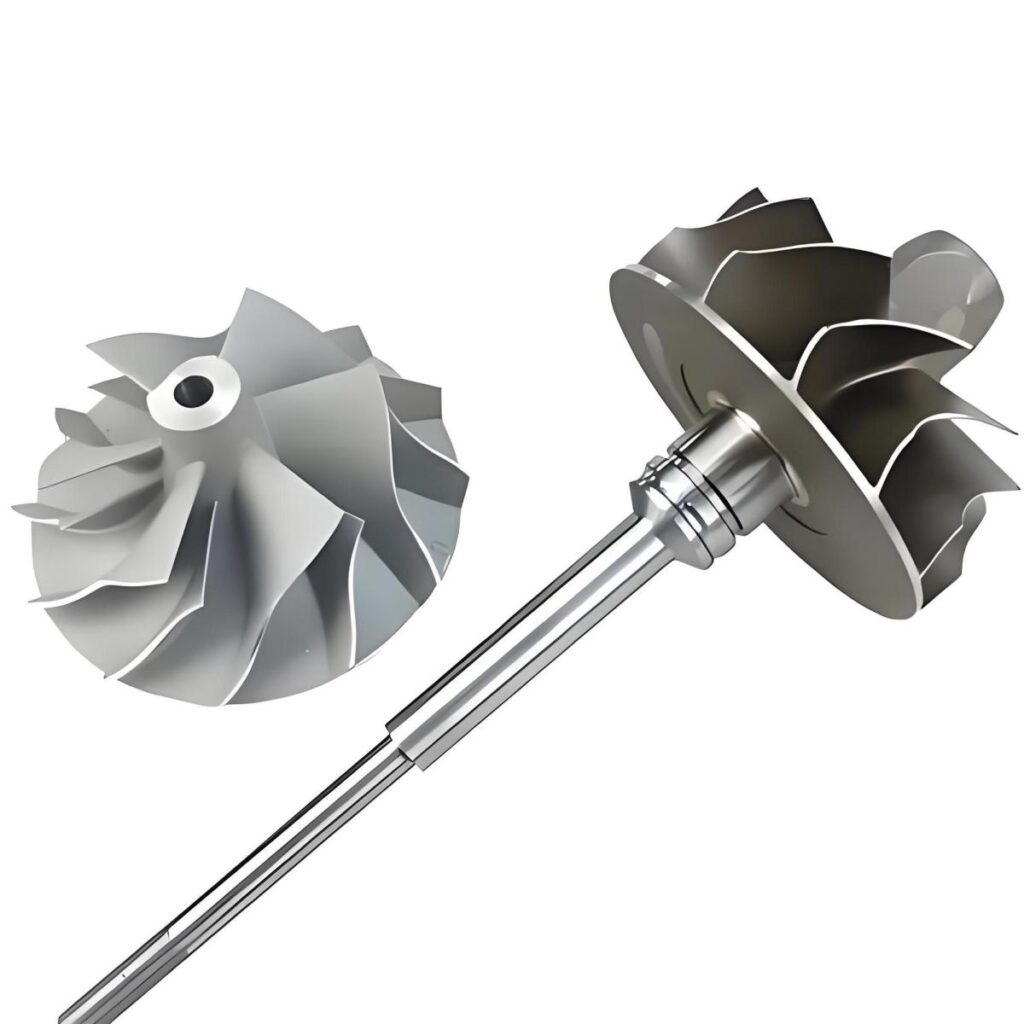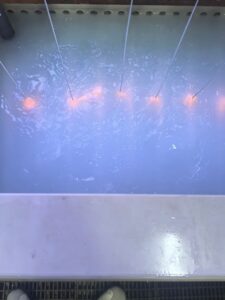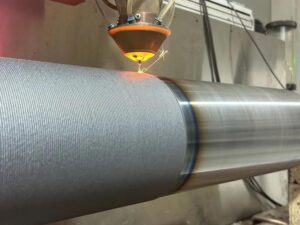4340 steel is a low-alloy, high-strength steel known for its remarkable toughness and ability to maintain structural integrity under high stress. Classified as an AISI 4340 steel, it belongs to the family of chromium-molybdenum (chrome-moly) steels, which are prized for their balance of strength, ductility, and resistance to wear. The designation “4340” refers to its specific chemical composition, as defined by the American Iron and Steel Institute (AISI), which includes key alloying elements like chromium, nickel, and molybdenum.
This steel is often referred to as 4340 chrome moly steel due to its chromium and molybdenum content, which enhance its hardness and corrosion resistance. Its versatility makes it a go-to choice for industries requiring robust materials capable of withstanding extreme conditions, such as aerospace, automotive, and heavy machinery manufacturing. From gears to aircraft landing gear, 4340 chrome moly steel is engineered to perform where reliability is non-negotiable.
4340 Steel Composition
The unique properties of 4340 steel composition are a direct result of its carefully balanced alloying elements. These elements work together to create a material that is both strong and adaptable. Below is a breakdown of the typical chemical makeup of this steel chemistry:
- Carbon (C): 0.38–0.43% – Contributes to hardness and strength.
- Manganese (Mn): 0.60–0.80% – Improves toughness and hardenability.
- Phosphorus (P): ≤0.025% – Minimized to reduce brittleness.
- Sulfur (S): ≤0.025% – Kept low to enhance machinability.
- Silicon (Si): 0.15–0.35% – Enhances strength and elasticity.
- Chromium (Cr): 0.70–0.90% – Boosts corrosion resistance and hardness.
- Nickel (Ni): 1.65–2.00% –) , increases toughness and impact resistance.
- Molybdenum (Mo): 0.20–0.30% – Improves strength at high temperatures and resistance to wear.
This precise 4340 chrome moly steel chemistry ensures the material can be heat-treated to achieve a wide range of mechanical properties, making it suitable for demanding applications. The combination of nickel, chromium, and molybdenum gives 4340 alloy steel its signature toughness and fatigue resistance, setting it apart from other low-alloy steels.
4340 Steel Properties
Physical Properties
The physical properties of 4340 steel describe its inherent characteristics, such as density and thermal behavior, which are critical for machining and processing:
- Density: Approximately 7.85 g/cm³ (0.283 lb/in³). This density is typical for low-alloy steels, providing a good balance between weight and strength.
- Thermal Conductivity: Moderate, allowing it to dissipate heat effectively during machining or in high-temperature environments.
- Melting Point: Around 1,420–1,460°C (2,588–2,660°F), enabling it to maintain structural integrity under extreme heat.
These physical attributes make this material suitable for applications where weight, thermal stability, and durability are critical considerations.
Mechanical Properties
The mechanical properties of 4340 chrome moly steel are what truly set it apart, particularly its strength and toughness. These properties can vary depending on the heat treatment applied, but typical values for 4340 steel yield strength and hardness include:
- Yield Strength: Typically ranges from 470–1,250 MPa (68,000–181,000 psi), depending on heat treatment. This high 4340 steel yield strength ensures the material can withstand significant stress without permanent deformation.
- Tensile Strength: 745–1,860 MPa (108,000–270,000 psi), showcasing its ability to resist breaking under tension.
- Hardness: In its annealed state, hardness is around 197–237 HB (Brinell). After heat treatment, it can reach 363–429 HB, making it suitable for high-wear applications.
- Elongation: Approximately 10–20%, indicating good ductility and the ability to deform without fracturing.
- Fatigue Strength: Excellent, due to the presence of nickel and molybdenum, which enhance resistance to cyclic loading.
These properties make it an ideal choice for components that must endure heavy loads, impact, and fatigue, such as crankshafts, axles, and structural supports.
Typical Heat Treat Process for 4340 Steel
The 4340 steel heat treatment process is critical to unlocking its full potential. By carefully controlling heating and cooling cycles, manufacturers can tailor the material’s properties to meet specific performance requirements. The typical heat treatment process for 4340 alloy steel involves the following steps:
- Normalizing: The steel is heated to 815–845°C (1,500–1,550°F) and air-cooled. This process refines the grain structure, improving toughness and uniformity.
- Annealing: To reduce internal stresses and improve machinability, the steel is heated to 680–720°C (1,256–1,328°F) and slowly cooled in a furnace.
- Hardening: The steel is heated to 830–860°C (1,526–1,580°F), followed by quenching in oil or water. This step increases it hardness and strength.
- Tempering: To reduce brittleness while maintaining strength, the steel is reheated to 400–680°C (752–1,256°F), depending on the desired balance of hardness and toughness.
The steel heat treatment process allows manufacturers to achieve a wide range of mechanical properties, from high ductility for forging to extreme hardness for wear-resistant components. This flexibility is one of the reasons why 4340 chrome moly steel is so widely used.
What is 4340 Steel Used For?

The versatility of 4340 alloy steel makes it a staple in industries that demand high-performance materials. Its ability to combine strength, toughness, and fatigue resistance makes it ideal for a variety of applications. Some common uses of it include:
- Aerospace: Aircraft landing gear, structural components, and turbine shafts benefit from the high 4340 steel yield strength and fatigue resistance.
- Automotive: Crankshafts, axles, and transmission gears rely on 4340 chrome moly steel for its durability and ability to withstand high torque
- Oil and Gas: Drill bits, pipelines, and valve bodies require the toughness and wear resistance of 4340 chrome moly steel to endure the harsh conditions of oil and gas extraction.
- Heavy Machinery: Components like gears, shafts, and couplings in heavy equipment such as bulldozers and cranes are often made from material 4340 steel due to its strength and reliability.
- Military: AISI 4340 steel is used in critical components like machine gun barrels and tank armor, where strength and impact resistance are paramount.
- Tool and Die Making: 4340 alloy steel is frequently used for forging dies and molds due to its ability to be heat-treated for varying levels of hardness.
These applications highlight the broad utility of 4340 chrome moly steel across industries, showcasing its adaptability to extreme conditions and high-performance requirements.
Advantages and Disadvantages of 4340 Steel
Like any material, 4340 alloy steel has its strengths and limitations. Understanding these can help manufacturers make informed decisions about its use in their projects.
Advantages
- High Strength and Toughness: The steel yield strength and toughness make it ideal for heavy-duty applications.
- Versatility: The ability to adjust its properties through 4340 steel heat treatment allows for customization based on specific needs.
- Fatigue Resistance: Its resistance to cyclic loading ensures longevity in dynamic applications like gears and shafts.
- Corrosion Resistance: The chromium and molybdenum content provides moderate corrosion resistance, suitable for harsh environments.
Disadvantages
- Cost: It is more expensive than mild steel due to its alloying elements and processing requirements.
- Machinability: In its hardened state, 4340 steel hardness can make machining more challenging, requiring specialized tools.
- Weldability: While weldable, 4340 chrome moly steel requires careful control to avoid cracking, adding complexity to manufacturing.
These trade-offs make 4340 chrome moly steel a premium choice for applications where performance outweighs cost and machining challenges.
Why Choose Precionn for 4340 Steel Machining?
When it comes to machining 4340 alloy steel, precision and expertise are paramount. Precionn, a leading name in the machining industry, specializes in delivering high-quality components made from 4340 chrome moly steel. With a commitment to excellence and state-of-the-art equipment, Precionn ensures that every project meets the highest standards of accuracy and durability. Whether you need complex aerospace components or robust automotive parts, Precionn’s experienced team can tailor the 4340 steel heat treatment process to achieve the desired balance of strength and toughness. By leveraging the unique 4340 steel properties, Precionn delivers reliable, high-performance solutions for even the most demanding applications. Visit Precionn’s website to learn more about how their machining expertise can bring your vision to life.




